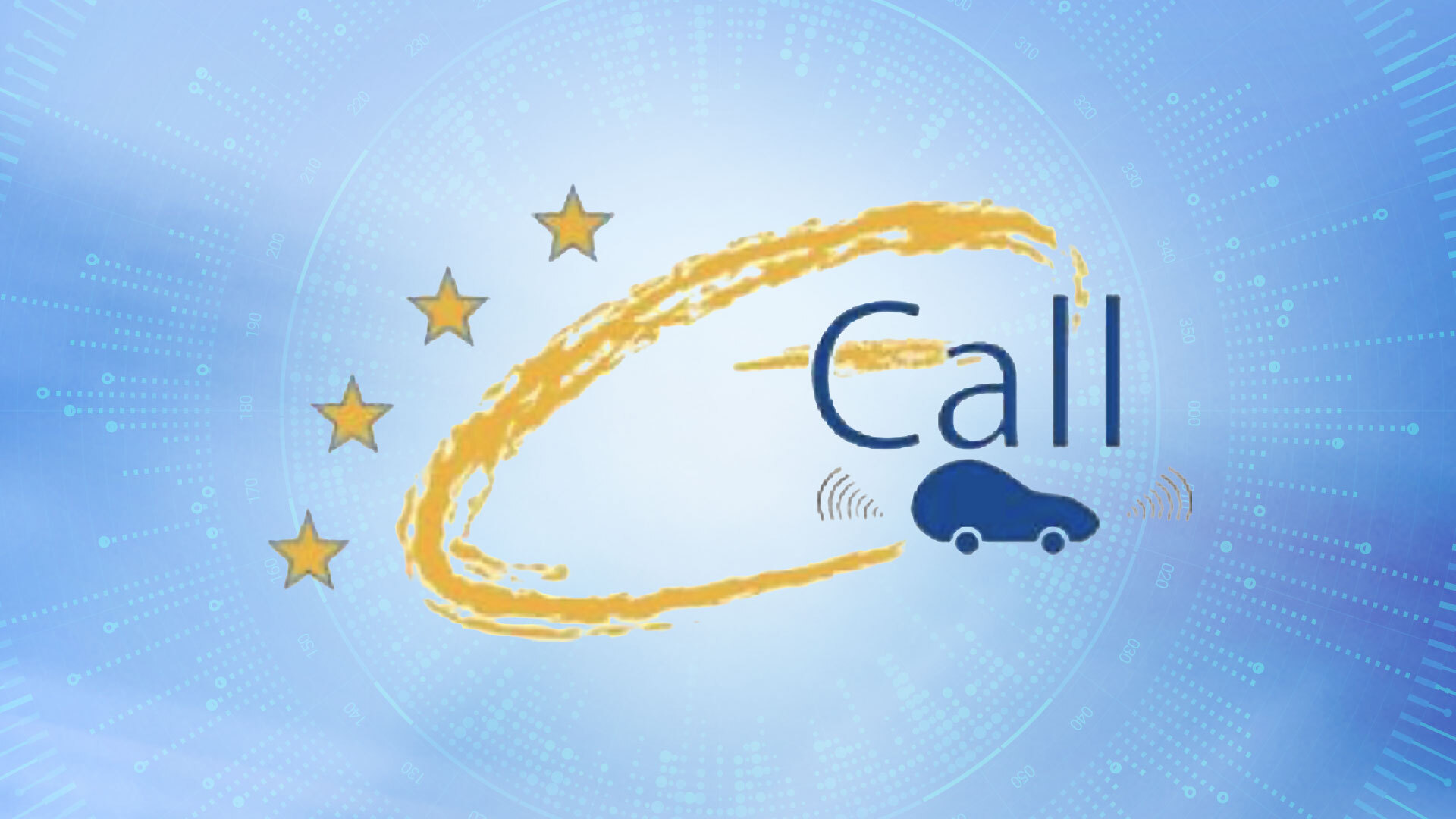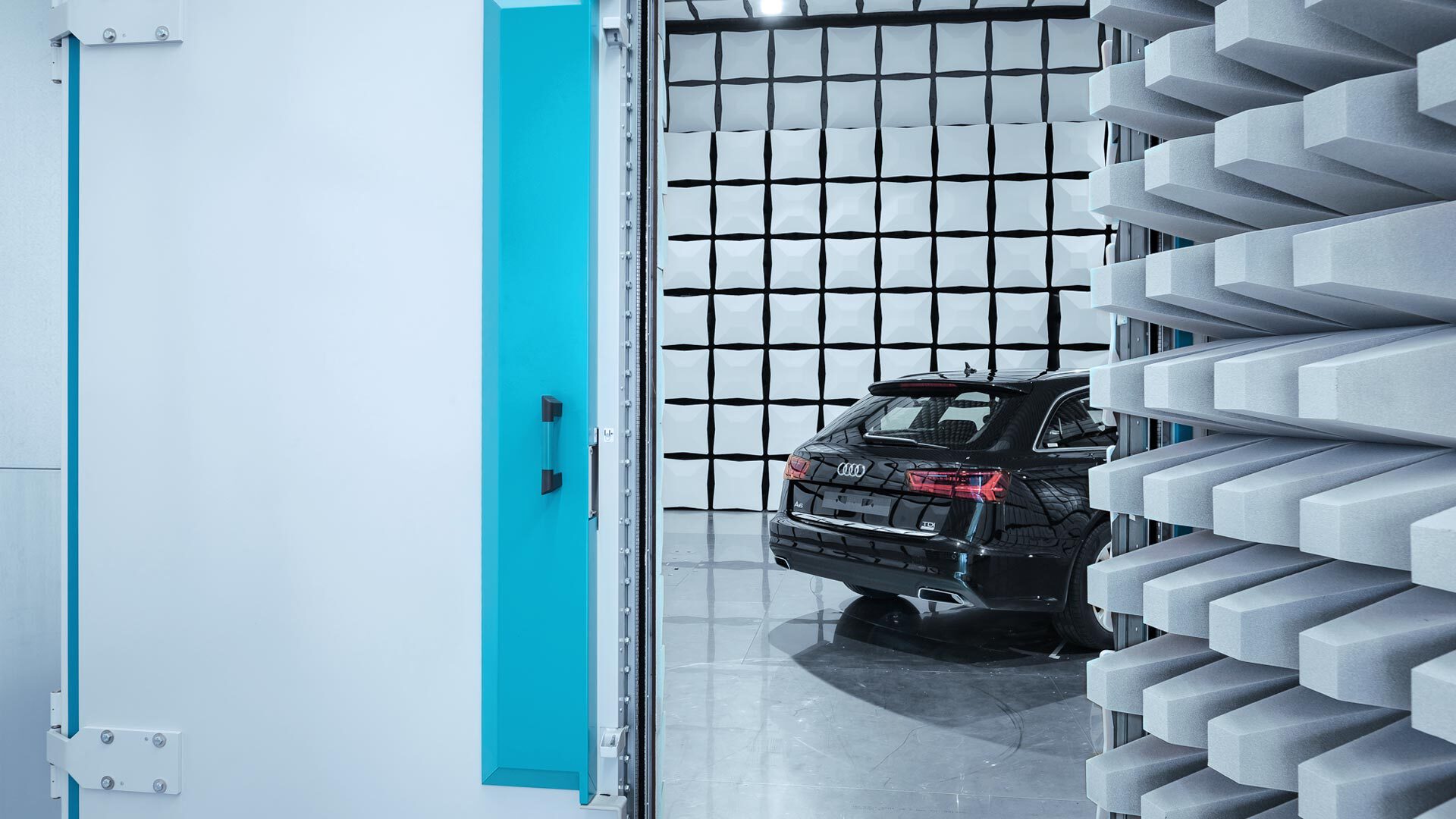eCall is an automatic emergency call system for motor vehicles mandated by the European Union. Devices installed in the vehicle are intended to automatically report a road accident to the single European emergency number 112 and, through more rapidly initiated rescue measures, help reduce the number of road fatalities and lessen the severity of injuries in road traffic.
Since April 1, 2018, eCall (via GSM/UMTS) has been mandatory for all new model types of passenger cars (M1) and light commercial vehicles (N1).
Since January 1, 2026, the packet-switched Next Generation (NG) eCall is mandatory for all new model types of passenger cars (M1) and light commercial vehicles (N1).
In order for motor vehicles to continue to be sold and approved in the EU, automotive manufacturers must obtain approval for the eCall systems they use on the basis of EU requirements. The relevant eCall tests are defined in Delegated Regulation (EU) 2017/79 amended by Delegated Regulation (EU) 2025/1871:

According to Implementing Regulation (EU) 2017/78, Annex I / II, Part I, § 12.8.7, manufacturers must declare conformity with the eCall standards in accordance with Article 5(8) of Regulation (EU) 2015/758. The list of relevant standards was updated by Delegated Regulation (EU) 2025/1871. The relevant tests are defined in:
Regulation (EU) 2015/758 further specifies that the tests for an eCall type approval should be carried out exclusively by a designated Technical Service.
From July 1, 2027, China eCall will become mandatory for all new model types of passenger cars (M1). From January 1, 2028, China eCall will also become mandatory for all new model types of light commercial vehicles (N1).
We take over project management for the official China eCall certification process.
Our services include:
We are currently also evaluating offering pre-testing services for the following test standards for China eCall in Germany in order to identify potential issues early:
If you are interested in pre-tests within the scope of the above-mentioned test standards, please feel free to contact us.
In July 2018, UN Regulation No. 144 (UN-R 144) entered into force. This regulation defines the approval procedures for:
Depending on the type of approval procedure, the test scope differs. Overall, the following test areas apply:
UN-R 144 is not only valid for the countries of the European Union; it currently applies to 61 states worldwide, including, among others, Russia, Japan and Korea.

We were already designated by the German Federal Motor Transport Authority (KBA) as a Technical Service for eCall in August 2017 and were the first laboratory in Europe to offer and carry out eCall type-approval tests. We were also the first laboratory designated by the KBA as a Technical Service for UN-R 144.
In April 2020, we were accredited by the German Accreditation Body (DAkkS) as the world’s first laboratory to conduct Next Generation eCall tests. We have also been designated as a Technical Service for eCall by the type-approval authorities in Ireland (National Standards Authority of Ireland – NSAI), Finland (Finnish Transport and Communications Agency – TRAFICOM) and the United Kingdom (Vehicle Certification Agency – VCA). In addition, for several years we have been involved in the standardization of eCall test specifications and standards (CEN and ETSI) and can draw on extensive experience from the large number of eCall projects carried out and ETSI NG eCall Plugtests.
With our exceptional expertise in the eCall type-approval process and the technical know-how acquired over many years for conducting the required eCall tests, we are your number-one point of contact when it comes to eCall type approval / certification.
We also offer technical support and project execution for ERA-GLONASS, the emergency call system for the territory of the Eurasian Customs Union.
We have consolidated our eCall expertise in an eCall Research Report that provides automotive manufacturers and suppliers with an ideal overview of current and future eCall requirements. The report (subject to a fee) also provides guidance for an efficient, global eCall type-approval strategy and is updated regularly (approximately every six months).
The 41-page document, which is available in English, can be ordered directly from us for a price of EUR 1,899.